Like drowning men clutching at straws, Giorgia Meloni’s opponents are trying ever more hopelessly to justify their claim that she is a far-right threat to democracy. It’s not that Meloni has stopped being far right since she became Italy’s first female prime minister eighteen months ago. It is just that — despite all the apocalyptic warnings about her — she wasn’t far right to begin with.
The new law is not an assault on the 1978 law that made abortion legal in Italy.
Meloni as a premier has proved to be much more like a Mediterranean version of Margaret Thatcher than the heir to Benito Mussolini — which many of her opponents still call her. As a result, she and her party, Fratelli d’Italia, which tops the polls by a large margin, remain very popular. Campaigning has now begun for the June Euro elections and Fratelli d’Italia is expected to win many more of the seventy-six seats allocated to Italy than any other party.
As a result, the leading exponents of the Italian left, whose parties continue to fare badly in the polls, appear increasingly desperate. During the past two weeks alone, they have suffered two severe bouts of Drowning Man Syndrome. First, they flew into a frenzy about a minor new law that allows pro-life volunteers into family planning clinics to speak one-to-one to pregnant women seeking abortions — if those women agree. This was a shameless assault on a women’s right to abort, they howled.
Next, they became even more frenzied at what they claimed was the cancellation by program chiefs at the state broadcaster, RAI, of a two-minute monologue by a left-wing writer. He wanted to accuse Meloni of being a “neo-fascist” who has allowed “the ghost of fascism to haunt Italian democracy.” This was censorship worthy of the Duce himself, they howled — even more loudly. (Their cries were uncensored, naturally.)
For days Meloni’s outraged opponents ensured that the two episodes dominated the conversation on Italy’s talk shows, front pages and social media, where more often than not, the left rules the roost. It was clear to anyone able to cut through the noise, however, that the outrage was wildly exaggerated and largely unjustified.
As Meloni was quick to remind everyone, the new abortion law (which passed its final hurdle when it was approved by the Senate last Tuesday) is not, as her opponents claim, an assault on the 1978 law that made abortion legal in Italy. In fact, it aims to enact a key aspect of that very same law which has never been put into practice.
The 1978 law permits abortion in the first ninety days after conception for “economic, social or family reasons” — and afterwards only if the life of the pregnant woman is in “grave danger,” or her baby has serious health issues. But it also requires family planning clinics to try and dissuade pregnant women who come to them for permission to have an abortion by helping them “overcome the causes” that have made them want one.
The “task” of the clinics — the law states — is, with the consent of the pregnant woman, “to look at possible solutions” in order “to remove the causes.” Meloni’s new law seeks to enact this requirement by allowing the presence of pro-life volunteers in family planning clinics. They will only be allowed to discuss practical, not, ethical issues — such as possible financial help, if lack of money is the reason for the woman wants an abortion.
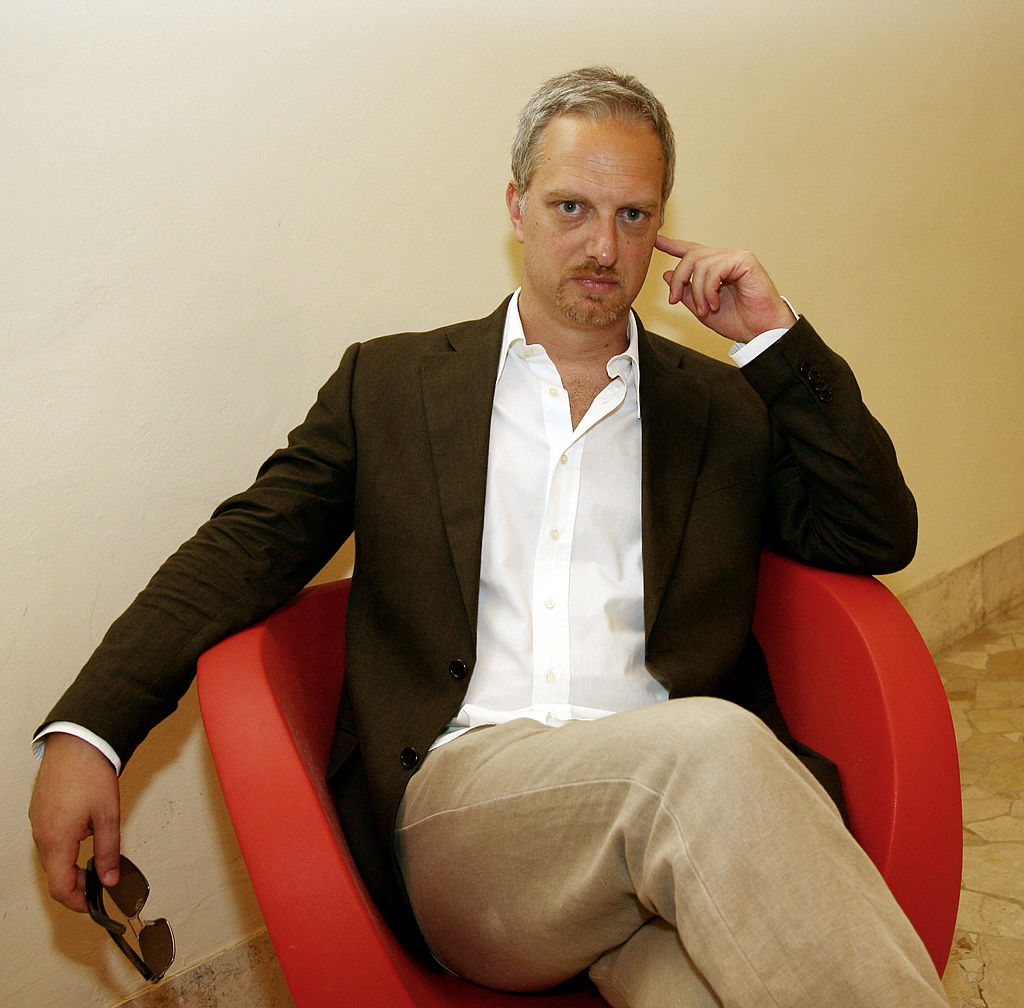
The new law is part of Meloni’s drive to reverse Italy’s declining population, caused by a combination of relatively low net migration levels and one of the lowest fertility rates in the world — 1.2 children per fertile woman, which is way below the 2.1 replacement rate. Obviously, the presence of pro-life volunteers’ offices in family planning clinics is controversial.
But Meloni’s new law does not give pro-life activists the green light to protest at abortion clinics or harass pregnant women. Despite this, according to the leaders of the main opposition party — the left-wing Partito Democratico — “shameful” Meloni is “attacking” the 1978 law and “the right” to abortion. Ana Redondo, Spain’s socialist equality minister, summed up the views of the Euro-left on Twitter: “It is the strategy of the ultra-right: to intimidate in order to reverse rights.” Ask anyone from the left to provide evidence that Meloni is a far-right threat to democracy and the first thing they will always tell you is that she is making abortion ever more difficult. Even if true, it’s not exactly a fascist takeover, is it?
But the real obstacle to abortion in Italy has nothing to do with Meloni, who told me when I interviewed her in Rome during the 2022 election campaign that she has no intention of making abortion harder. Meloni — a separated mother-of one — would not abort an unborn child herself, she told me, but nor would she impose her view on any other woman. What does make abortion difficult in Italy is the 1978 law, which allows medical staff to refuse on moral or religious grounds to carry out abortions. And two thirds of gynecologists do refuse to carry them out — a figure that in some regions rises to more than four-fifths. They can’t all be far right post-fascists, can they?
It was Meloni’s membership until 2008 of Italy’s now defunct post-fascist party, Alleanza Nazionale (AN), that gives her opponents the excuse to attack her as a reincarnation of Mussolini. It makes no difference that in the mid-1990s, AN rejected fascism and its then leader apologized for the evil it had caused. In 2012, Meloni and others then founded Fratelli d’Italia as a conservative party. In my interview with her, she told me point blank: “I am not a fascist.” She said that if she were British, she would “probably be a Tory.”
Aware that most Italians are able to spot a real fascist when they see one, Meloni’s opponents rarely use the word “fascist,” unadorned, to describe her or her party, as it would be absurd. Instead, they get as close as possible with epithets such as “neo-fascist,” “post-fascist” and (especially if they are foreign) “far right” or “the heir to Mussolini.”
The Italian left’s intellectual engine room — the newspaper La Repubblica — has now begun to prefer a more intellectual-sounding phrase, however turgid, to describe Meloni’s right-wing coalition government: “Democrazia Illiberale” (Illiberal Democracy). This was its front-page splash headline on Sunday, above dense discussion of the meaning of the term in the context of the awful Meloni.
The rumba was already in full flow: censorship, regime, fascism!
But there was another, more absurd, smear on Meloni last week. The left-wing author Antonio Scurati, who has written a bestselling novel about Mussolini, was due to deliver a two-minute monologue during an episode of a chat show on RAI3, the state broadcaster’s third channel, to mark the anniversary of the liberation of Italy on April 25, 1945, by the Allies. In the monologue, he more or less accuses Meloni of being a fascist.
When forced to answer for fascism’s wrongs, Meloni invariably sticks to “the ideological line of the neofascist culture from which she comes,” he claims, which is to “distance herself from the indefensible brutalities perpetrated by the regime [the persecution of Jews] without ever repudiating in its entirety the fascist experience.”
Scurati: “Until that word — anti-fascism — is pronounced by those who govern us, the ghost of fascism will continue to haunt the house of Italian democracy.”
In reality, Meloni, like most on the right in Italy, whether post-fascist or not, refuses to call herself “anti-fascist” because the word has lost its original meaning and become synonymous with “left-wing.” What’s more, even though the Partito Democratico are heirs to Italy’s communist party, the largest in Europe outside the Soviet Bloc, no one demands that they call themselves anti-communists.
When Scurati did not get to read his anti-Meloni diatribe, he and the show’s presenter immediately claimed that program chiefs had censored him. In vain, RAI said that the reason Scurati did not deliver the monologue — which was read out anyway by the show’s presenter — had nothing to do with censorship, but was because they were not prepared to pay him the €1,750 he demanded.
But the left refused to accept this, and fired up their politico-media machine to turn the “censored” monologue into the talk of the town. To demonstrate that she had no desire to censor Scurati, Meloni swiftly published it on her Facebook page that has 2.9 million followers. No dice. The rumba was already in full flow: censorship, regime, fascism!
Marco Travaglio, the editor of the Fatto Quotidiano, who is a virulent Meloni critic, initially believed the censorship story, but then conducted an in-depth investigation of the matter. Shown the evidence by RAI sources as what had happened, he had the decency to concede in his newspaper last Saturday that “there was no censorship” and “the RAI editors never said that he [Scurati] should not read his monologue!” As for Scurati’s accusation that Meloni has “never repudiated fascism in its entirety,” Meloni told me: “In the DNA of Fratelli d’Italia there’s no nostalgia for fascism, racism, or antisemitism. There is instead a rejection of every dictatorship: past, present and future.”
On April 25, Meloni wrote on her Facebook page: “On the day in which Italy celebrates the Liberation that with the end of fascism laid the foundations for the return of democracy, we restate our repulsion for all totalitarian and authoritarian regimes. Those of yesterday, that oppressed the peoples of Europe and the world, and those of today, who we are determined to counter with commitment and courage.”
Meanwhile in Milan, that same day, pro-Palestine demonstrators at the April 25 memorial march attacked Jews carrying Star of David flags in honor of the Jewish Infantry Brigade that fought alongside the British Army in the campaign to liberate Italy. One Jewish marcher was stabbed though not seriously hurt. How ironic that these days, the Jews in Italy have more to fear from the post-communist left than the post-fascist right.
This article was originally published on The Spectator’s UK website.



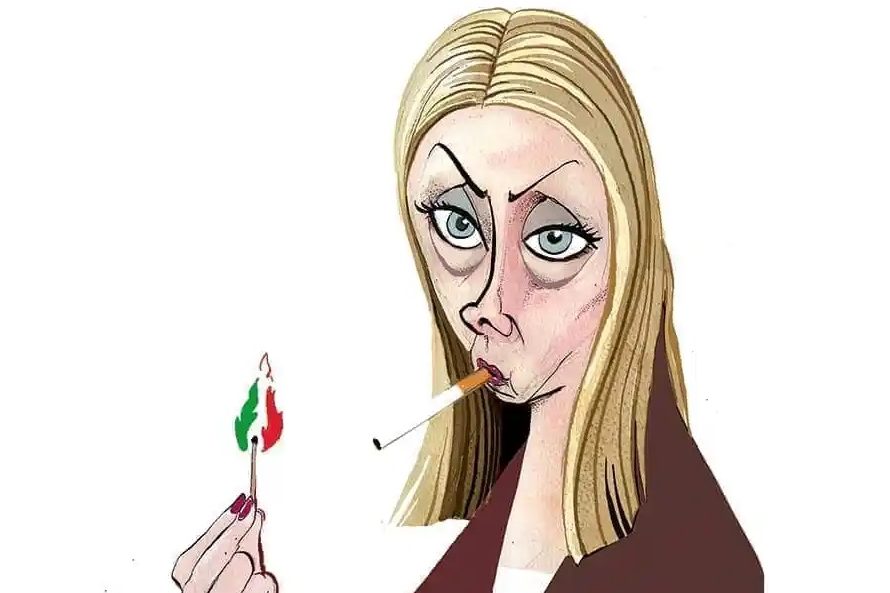








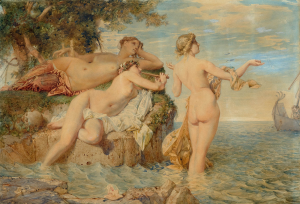

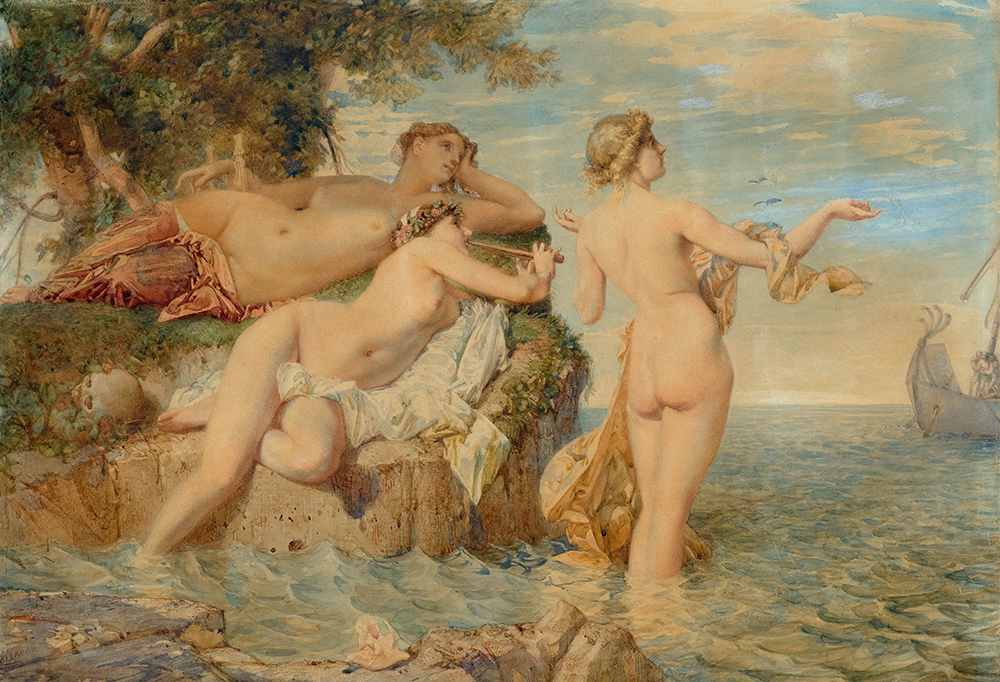



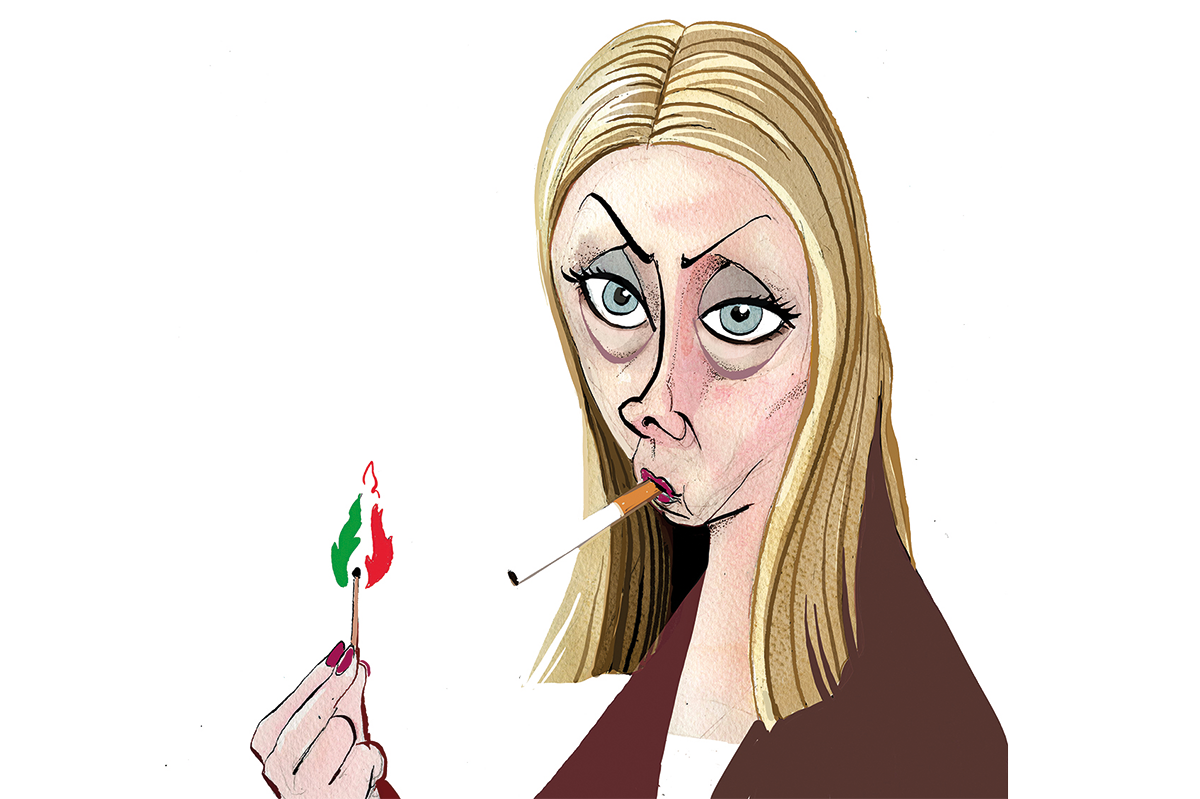







Leave a Reply